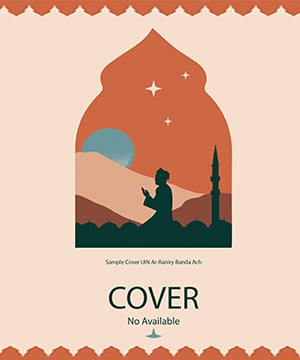References
Agip, Zainal dkk, 2009. Penelitian Tindakan Kelas untuk Guru SD, SLB, dan TK. Bandung : Yrama Widya.
Arifin, Zainal. 2013. Evaluasi Pembelajaran (Prinsip, Teknik, Prosedur). Bandung: PT. Remaja Rosdakarya.
Arikunto, Suharsimi. 2010. Dasar-dasar Evaluasi Pendidikan. Jakarta : Bumi Aksara.
Daryanto.2008. Evaluasi Pendidikan. Jakarta : PT Rineka Cipta.
Direktorat Jenderal Guru dan Tenaga Kependidikan Kementerian Pendidikan dan Kebudayaan 2018.
Haig, Yvonne. (2014). Higher Order Thinking And Assessment. International Seminar on current issues in Primary Education: Prodi PGSD Universitas Muhammadiyah Makasar.
Hazraini. 2017. Upaya Meningkatkan Kompetensi Guru Kelas Dalam Penyusunan Soal Pilihan Ganda Yang Baik dan Benar Melalui Pendampingan Berbasis KKG Semester Satu Tahun Pelajaran 2017/2018 di SD Negeri 40 Cakranegara. JUPE, Vol. 2 No.2.
Heong, Y.M., dkk. 2011. The level of Marzano Higher Order Thinking Skills Among Trchnical Education Students. International Jurnal of Social and Humanity, Vol.1, No.2, July 2011, 121-12.
Ishak, Baego dan Syamsuduha. 2011. Evaluasi Pendidikan. Makasar. Alauddin press
Kashyap, Surekha. Item Analysis of Multiple Choice Questions. International journal of current research 7 (2018) : hlm..
Saputra, Hatta. 2016. Pengembangan Mutu Pendidikan Menuju Era Global: Penguatan Mutu Pembelajaran dengan Penerapan HOTS (High Order Thinking Skills). Bandung: SMILE’s Publishing.
Sauri, Sofyan. 2006. Kesantunan Berbahasa. Bandung : Rizqi Press.
Subali, Bambang. 2012. Prinsip Asesmen & Evaluasi Pembelajaran. Yogyakarta: UNY press.
Sudijono, Anas. 2015. Pengantar Evaluasi Pendidikan. Jakarta: Rajawali Pers.



